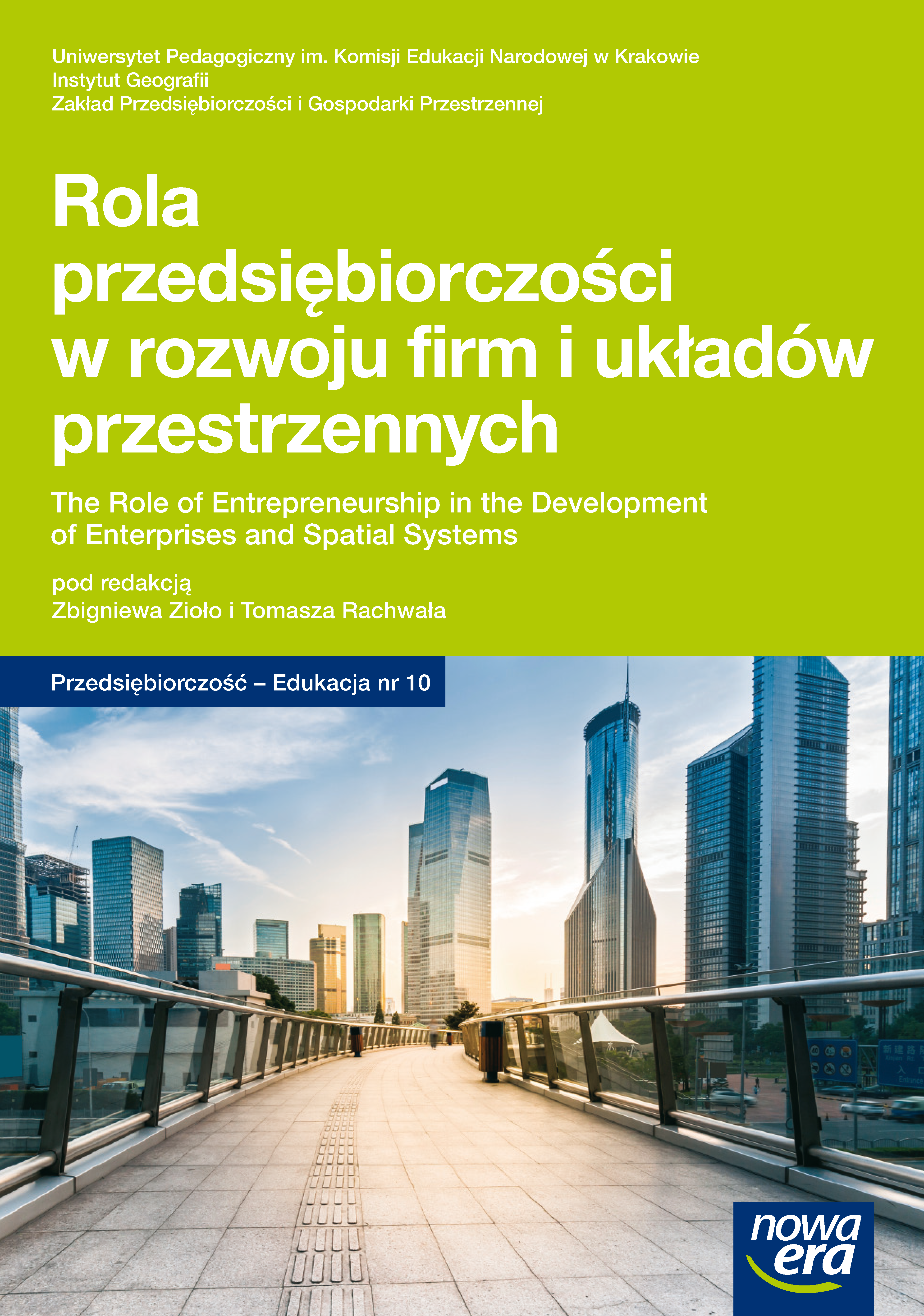The issue of changes in the pension system in entrepreneurship education in secondary school
DOI:
https://doi.org/10.24917/20833296.10.27Keywords:
basics of entrepreneurship, entrepreneurship education, pension funds, pension system, PolandAbstract
At the end of 2013 new legislation reforming the existing pension system in Poland, leading to the practical elimination of the second pillar and the takeover by the state of part of the funds collected by members of the open pension funds (OFE), was introduced at express pace. The changes are very deep, which means that the new pension system in practice will no longer be the same system, designed by the creators of the great reforms of the 1998. The second pillar becomes insignificant component of the pension system, and for many is not at all a pillar of retirement. The purpose ofthis article is therefore to present the changes in pension systems, presenting the arguments of supportersand critics of the reform and its implications for the citizens and the national economy in thecontext of the implementation of these teaching content by teachers in lessons on entrepreneurship in upper secondary school.
References
Antonów, K. (1999), Otwarte fundusze emerytalne w systemie zabezpieczenia emerytalnego w Polsce, Praca i Zabezpieczenie Społeczne, 11, 10-15.
Kosała, M., Pichur, A. (2008). Analiza działań przedsiębiorczych i postrzeganie prowadzenia działalności gospodarczej przez młode pokolenie – wybrane aspekty. Przedsiębiorczość – Edukacja, 4, 357-364.
Makieła, Z., Rachwał, T. (2005). Podstawy przedsiębiorczości – program nauczania dla liceum ogólnokształcącego, liceum profilowanego i technikum, wydanie drugie, Warszawa: Nowa Era.
Makieła, Z., Rachwał, T. (2012). Krok w przedsiębiorczość – podręcznik do podstaw przedsiębiorczości dla szkół ponadgimnazjalnych, Warszawa: Nowa Era.
Niesłuchowski, M. (2012, data dostępu 1.04.2014). Program nauczania podstaw przedsiębiorczości w zakresie podstawowym dla szkół ponadgimnazjalnych – Krok w przedsiębiorczość, dokument elektroniczny dostępny na stronie internetowej: http://www.nowaera.pl/component/pomoce/27/pg/ podstawy-przedsiebiorczosci.html?idk=9999997.
Oręziak, L. (2014), OFE – katastrofa prywatyzacji emerytur w Polsce, Warszawa: Instytut Wydawniczy Książka i Prasa.
PAP (2014, data dostępu 1.04.2014). Dr Balicki: wniosek prezydenta do TK ws. OFE nie dotyczy meritum sporu, publikacja elektroniczna dostępna na stronie internetowej http://prawo.rp.pl/artykul/1087121.html.
Rachwał, T., Kudełko, J., Tracz, M., Wach, K., Kilar, W. (2008). Projekt podstawy programowej podstaw przedsiębiorczości w zakresie rozszerzonym dla liceum ogólnokształcącego, liceum profilowanego i technikum. Przedsiębiorczość – Edukacja, 4, 312-324.
Sołdek, A. (2011), Wpływ opłat na zgromadzone oszczędności emerytalne w regulowanych i dobrowolnych systemach, Polityka Społeczna, 2011, numer specjalny, 38-43.
Strzelczyk, A. (2012). Otwarte fundusze emerytalne – analiza taksonomiczna, Prace Naukowe Uniwersytetu Ekonomicznego w Katowicach, 2012, 342-359.
Trippner, P. (2010). Analiza płynności finansowej i rentowności Powszechnych Towarzystw Emerytalnych, Annales Universitatis Mariae Curie-Skłodowska. Sectio H. Oeconomia, 44/2, 969-980.
Trzop, R. (2011), Fundusze emerytalne na plusie, Gazeta Bankowa, 1, 55-61.
Ustawa z dnia 13 października 1998 r. o systemie ubezpieczeń społecznych (Dz.U. 1998 Nr 137 poz. 887 z późn. zm.).
Ustawa z dnia 17 grudnia 1998 r. o emeryturach i rentach z Funduszu Ubezpieczeń Społecznych (Dz.U. 1998 Nr 162 poz. 1118 z późn. zm.).
Ustawa z dnia 20 kwietnia 2004 r. o indywidualnych kontach emerytalnych (Dz.U. 2004 Nr 116 poz. 1205 z późn. zm.).
Ustawa z dnia 21 listopada 2008 r. o emeryturach kapitałowych (Dz.U. 2008 Nr 228 poz. 1507 z późn. zm.).
Ustawa z dnia 28 sierpnia 1997 r. o organizacji i funkcjonowaniu funduszy emerytalnych (Dz.U. 1997 Nr 139 poz. 934 z późn. zm.).
Ustawa z dnia 6 grudnia 2013 r. o zmianie niektórych ustaw w związku z określeniem zasad wypłaty emerytur ze środków zgromadzonych w otwartych funduszach emerytalnych (Dz.U. 2013 poz. 1717).
Wach, K. (2013). Edukacja na rzecz przedsiębiorczości wobec współczesnych wyzwań cywilizacyjno- -gospodarczych. Przedsiębiorczość – Edukacja, 9, 246-257.
Downloads
Published
How to Cite
Issue
Section
License
Articles are published under the terms of the Creative Commons License (CC BY-ND 4.0; Attribution– NoDerivs).

